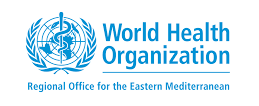Impact of COVID-19 Vaccination on Infection Rates and Severity in Healthcare Workers at Benghazi Medical Centre
DOI:
https://doi.org/10.69667/amj.25204Keywords:
COVID-19 Vaccination, Infection, Rates and Severity, Healthcare Workers, Benghazi Medical Centre.Abstract
During the SARS-CoV-2 pandemic, health care workers (HCWs) were more susceptible to infection, and as such, they were given priority immunization. This study aims to evaluate the effectiveness of COVID-19 vaccination against symptomatic SARS-CoV-2 infection among HCWs in Libya.164 healthcare professionals at Benghazi Medical Center participated in this cross-sectional research to assess the efficacy of the COVID-19 vaccination. A standardized questionnaire evaluating demographics, vaccination status, post-vaccination experiences, breakthrough infections, history of SARS-CoV-2 and COVID-19 exposure, adherence to safety protocols, and medical history was filled out by participants who had received at least one dose of the vaccine. Using chi-square and t-tests, the data, which were analysed using SPSS v28, showed correlations between vaccination status and health outcomes (p<0.05). The study, which has received ethical approval, sheds light on the efficacy of vaccines in this medical group. The study involved 164 participants, with a majority being doctors (92.7%), and women (67.7%). Most participants (64%) were aged 25–35 years. Among the participants, 32.93% (n= 54) received only one dose, 57.93% (n=95) were fully vaccinated with two doses and 9.15% (n=15) received one booster dose. For the first and second doses, Sputnik was predominantly utilized. A significant association was found between gender (P = 0.011), and age (P < 0.001) with vaccination status. Before vaccination, 36% had already been infected with COVID-19, with most infections having been treated at home. Post-vaccination data indicated a decrease in infection rates of COVID-19 and severity of symptoms among vaccinated participants. VE against symptomatic infection was 30% (95% CI:16.4 - 43.6) for HCWs vaccinated with two doses and 44.5% (95% CI: 24-65) for HCWs vaccinated with one booster dose. Infection prevention and control practices were good as 71.3% practiced hand hygiene consistently, but with less compliance with social distancing and the use of gowns. In conclusion, the effectiveness of the COVID-19 vaccine in preventing the infection incidence and the severity among the healthcare workers is supported by this study. To achieve a maximum protection and maintenance of uninterrupted healthcare system function during the ongoing pandemic, it calls for complete vaccination and booster doses in addition to intensified IPC measures and customized public health measures. Future research needs to address the long-term vaccine efficacy, and the interventions to enhance IPC adherence in hospitals.












